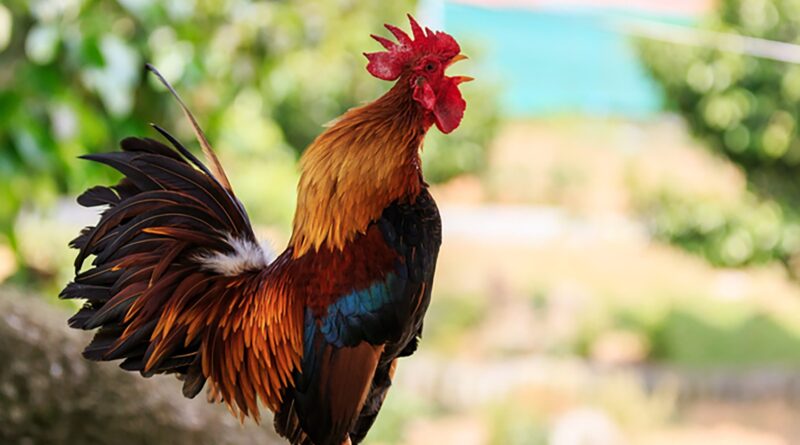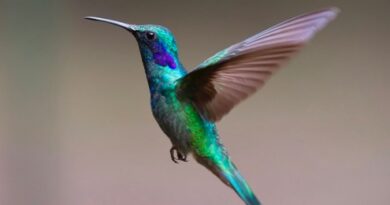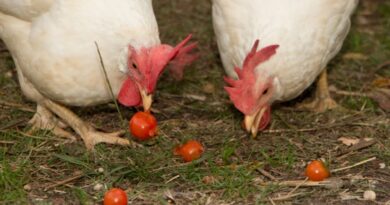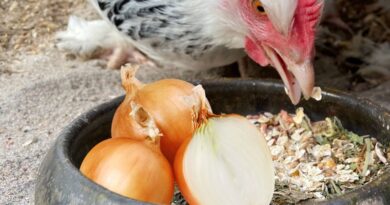Why Do Roosters Crow in the Morning? Understanding the Science Behind It
Roosters, with their iconic crowing at the break of dawn, have long been a symbol of the early morning hours. Their crowing, often heard before the sun rises, is an essential part of rural life, and for centuries, it has captivated the curiosity of humans. But what causes this behavior? Is it merely a ritual or a natural response tied to the rooster’s internal clock? This article delves into the science behind why roosters crow in the morning, exploring the biological, evolutionary, and environmental factors at play.
The Nature of a Rooster’s Crowing
To understand why roosters crow in the morning, it’s important first to acknowledge that crowing is a natural behavior for them. Roosters crow at various times throughout the day, but the most noticeable and recognizable instance is at dawn. This crowing is not just random noise but serves multiple purposes, both biological and social.
Roosters have a specialized vocal organ called the syrinx, which allows them to produce loud, resonant sounds. This is different from the human larynx and gives them the ability to crow loudly and at different pitches. When a rooster crows, it typically signals something important in its environment, such as marking territory, signaling the start of a new day, or attracting mates.
The Role of Circadian Rhythms in Roosters
One of the main scientific explanations for why roosters crow at dawn is their circadian rhythm. Circadian rhythms are the internal biological processes that regulate an organism’s sleep-wake cycles, feeding, and other bodily functions, usually on a 24-hour cycle. These rhythms are controlled by the pineal gland, which responds to external cues such as light and darkness.
For roosters, their circadian rhythm plays a crucial role in their crowing behavior. Roosters, like most animals, are sensitive to the rising and setting of the sun. As dawn approaches, the increase in light stimulates their circadian rhythm, prompting them to crow. This is their way of marking the transition from night to day, both for their internal body clock and for the external environment.
Why the Morning? Understanding Dawn Crowing
Roosters are known to crow at the break of dawn, but why exactly in the morning and not at other times of the day? The answer lies in both biology and evolutionary survival strategies.
- Natural Light Triggers Crowing: The rising sun is a powerful environmental cue that affects the rooster’s circadian rhythm. As the first light of day breaks the darkness of night, the rooster’s internal clock signals it to crow. This behavior is not just instinctual but is tied to their need for survival and communication within their social structure.
- Territorial Behavior: Roosters are territorial animals. Crowing at dawn is a way of marking their territory and asserting dominance over other roosters. The first crow of the day is often louder and more distinct, meant to alert rival roosters to the fact that a specific area is already claimed. This behavior is an evolutionary trait designed to minimize conflict by announcing their presence before other males can enter the area.
- Mating and Communication: In addition to marking territory, crowing serves a reproductive function. The crowing of a rooster is also a signal to hens and other potential mates that he is healthy, alert, and ready to defend his territory. In the wild, this crowing may help attract hens and show dominance, ensuring that his genetic material is passed on.
- Regulating the Social Structure: A rooster’s crowing can also regulate the social order within a flock. In a well-organized flock, a dominant rooster typically crows first, followed by subordinate roosters. This helps establish a clear hierarchy among the birds and can prevent unnecessary fighting by clearly defining roles.
The Science of Rooster’s Internal Clock: The Pineal Gland and Melatonin
A deeper understanding of why roosters crow at dawn comes from examining their pineal gland and its role in regulating their internal body clock. The pineal gland is a small, pea-sized structure located in the brain, responsible for producing melatonin, the hormone that regulates sleep.
When the sun rises, light signals the pineal gland to stop producing melatonin, which helps signal the start of the day. This increase in light triggers a series of internal events, leading to the rooster’s crow. The pineal gland is highly sensitive to light, and as the rooster’s circadian rhythm responds to the changing light conditions, it becomes more active and alert, resulting in the crowing behavior.
Do Roosters Crow at Other Times?
While dawn is the most recognized time for rooster crowing, roosters can also crow at various times during the day and night. However, the crowing at dawn is often louder and more pronounced because of the rooster’s internal rhythm, which is most sensitive at sunrise. Roosters may crow in response to changes in their environment, such as the arrival of a predator, a new rooster entering their territory, or even when they hear the crowing of other roosters.
Interestingly, roosters are not always synchronized in their crowing, meaning different roosters may crow at different times, especially in large flocks. This variation can serve a social function, as one rooster’s crowing may alert others in the flock to the time of day or potential dangers.
The Evolution of Roosters and Their Crowing Behavior
Roosters’ crowing is not just a random act; it is deeply tied to their evolutionary survival. Researchers believe that the crowing of a rooster has developed as an adaptive trait over time, primarily for communication and mating purposes. Roosters are naturally inclined to crow at the break of dawn to announce their presence, establish dominance, and warn other males to stay away.
This behavior likely evolved as a way to increase the rooster’s chances of attracting mates and avoiding fights. By crowing loudly at dawn, the rooster is signaling that he is healthy, dominant, and capable of defending his territory. In this way, the rooster’s crowing can be seen as an evolutionary strategy to assert control over its environment and increase its reproductive success.
Can Roosters Crow in the Absence of Light?
An intriguing question that often arises is whether roosters will crow if they are kept in a completely dark environment. The answer is yes! Roosters can and will crow even in the absence of natural light. This is because their internal circadian rhythm is not solely dependent on external cues like sunlight; rather, it is regulated by an internal “biological clock.”
Studies have shown that roosters, when kept in complete darkness, still exhibit crowing behavior. However, the timing of their crowing is slightly altered. In a controlled environment where the rooster’s exposure to light is regulated, they may crow at slightly different times than in the wild. This suggests that while light plays a crucial role in triggering their crowing, their internal clock can still operate independently in its absence.
Conclusion: The Science and Significance of Rooster Crowing
In conclusion, the question of why roosters crow in the morning is rooted in a combination of biology, evolutionary survival, and social communication. Roosters crow at dawn due to their internal circadian rhythm, which is influenced by the rising sun. This crowing behavior serves multiple purposes, from marking territory and attracting mates to regulating the social structure of the flock.
The science behind rooster crowing highlights the fascinating interplay between external environmental cues and internal biological processes. It is a behavior that has evolved over time to help roosters survive and thrive in their natural environment. While the rooster’s crowing may seem like a simple morning ritual, it is, in fact, a complex and vital part of their daily lives.
So, the next time you hear a rooster crowing at dawn, remember that it’s not just an early morning noise—it’s a signal of the rooster’s biological rhythms, its territorial claims, and its social communication, all working together to start the day.




